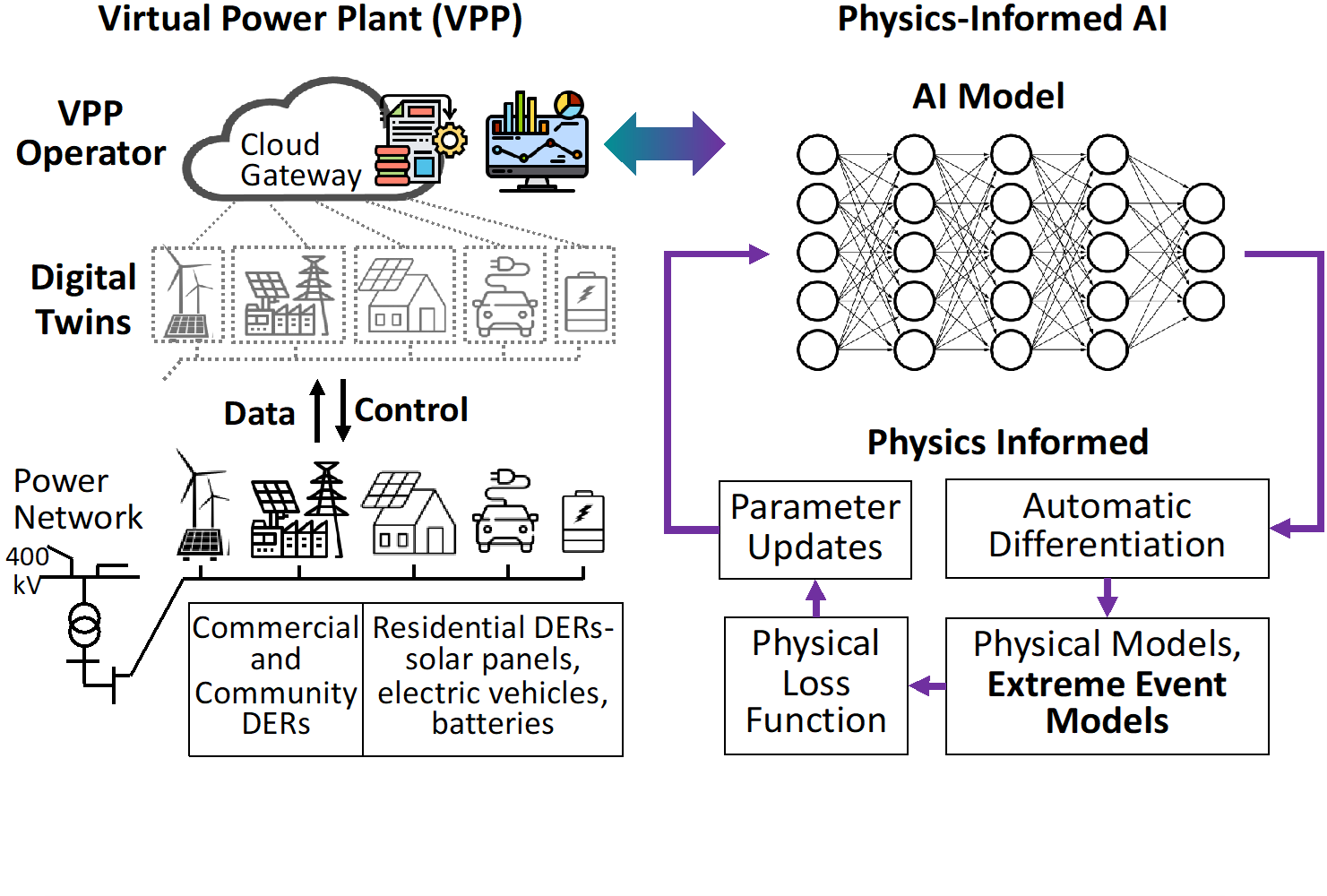
Researchers at the Durham Energy Institute have been awarded a £1.84m grant to lead a consortium of university and industry partners in developing virtual power plant technologies. The new funding is part of UK Research and Innovation's (UKRI) £13 million investment to fund 13 projects to help the UK meet its Net Zero targets.
The widespread adoption of such power plants aim to lower energy bills for millions of energy consumers; reduce the number of power cuts during extreme weather events; encourage greater adoption and more efficient management of renewable energy sources; and ultimately to enable a more rapid progress towards Net Zero goals.
What is a DER?
Traditionally, the UK generates most of its electricity in large-scale power stations that are connected to the power grid but new smaller scale, distributed energy resource (DER) technologies are enabling electricity generation closer to use. A DER enables individuals, businesses, communities, schools and industry to install technologies such as wind power, solar power to generate energy by themselves in a local distribution network.
The challenge
The challenge of integrating millions of DERs with associated local distribution networks into the existing power grid is immense for electricity network operators. Effective solutions to grid operation, power flow management, and voltage anomalies must be found to lever the potential Net Zero rewards.
There is still considerable research to be done to identify the best approach to manage millions of DERs, especially for improving grid resilience to natural hazards and extreme events such as storms and heatwaves. The outcomes from this innovative project will develop an approach to manage millions of Distributed Energy Resources (DERs) connected to the UK power grid.
The approach
This project will develop innovative physics-informed Artificial Intelligence (AI) solutions for enabling Virtual Power Plants (VPP), capable of aggregating and managing many diverse DERs to improve the decision-makings of network operators and enhance the grid resilience when facing the threat of natural hazards and extreme weather events.
The diagram below shows the structure of the project and illustrates the power of AI to analyse data from disparate sources, which includes not only power generation systems but also climatic information from real-life environments.
 The partners in the consortium
The partners in the consortium
The multi-disciplinary consortium is led by Professor Hongjian Sun, Fellow of Durham Energy Institute and Professor in the Department of Engineering, and includes colleagues in the Departments of Computer Science, Management and Marketing, and Mathematical Sciences. Other academic partner includes the Universities of Edinburgh, Birmingham, and Northumbria, with 11 industrial partners that includes Siemens, Northern Power Grid, and National Grid Gas Transmission.
This research and innovation project is part of a £13 million package of investments to help the UK meet its Net Zero targets. Other projects will look at developing AI technologies to:
- have more sustainable land management
- accelerate energy efficient carbon dioxide capture
- improve resilience for natural hazards and extreme events potentially leading to reduced energy bills for UK energy consumers
- accelerate selection of biofuel crops with high yields that are climate resistance and will minimise environmental impact
Outcomes will help to develop new ways of reducing the UK's carbon footprint, and potentially leading to reduced energy bills for UK energy consumers.






